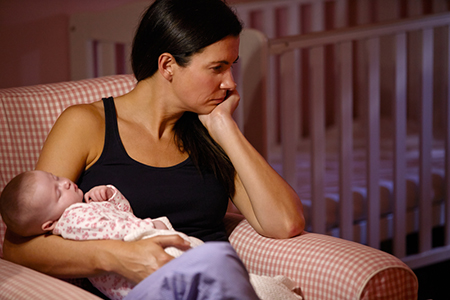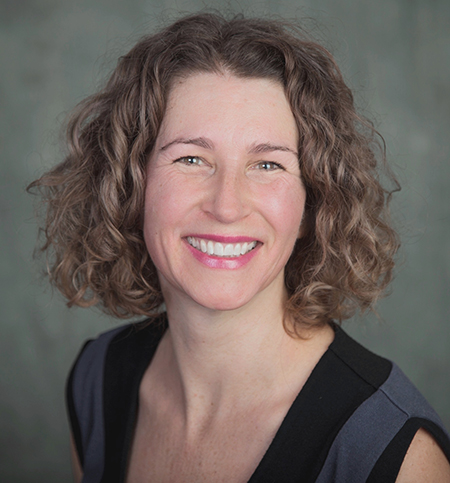 If a mother admitted to having unwanted, intrusive thoughts of harming her child, she would likely set off alarms among health professionals, social workers or the police.
If a mother admitted to having unwanted, intrusive thoughts of harming her child, she would likely set off alarms among health professionals, social workers or the police.
But is such a reaction always warranted? Nichole Fairbrother has her doubts.
An Assistant Professor of Psychiatry in UBC’s Island Medical Program, Dr. Fairbrother and her team have been interviewing hundreds of mothers across British Columbia, exploring whether they are plagued by thoughts of accidentally or purposely harming their babies – and if so, whether that has any effect on their parenting.
In a smaller, preliminary study by Dr. Fairbrother published in 2008, almost half of the women reported fleeting but distressing thoughts of intentionally harming their babies, through such actions as shaking, hitting, sexual touching, stabbing or burning. But she found no evidence that those unwanted, intrusive thoughts led to violent behavior. In other words, those thoughts of doing harm were just thoughts.
“These thoughts feel foreign and repugnant to the women who have them,” she says.
Dr. Fairbrother wants to more definitively determine if mothers with these thoughts, which come out of nowhere, are at any risk of harming their infants. She also wants to determine the extent to which those thoughts become recurring for some women – a situation that psychiatrists consider to be obsessive compulsive disorder (OCD).
“In the field of OCD, we’re used to clients reporting negative, even repulsive thoughts that they are in no way at risk of acting upon,” Dr. Fairbrother says. “But if you’re not in that field, and you hear about a mum having thoughts of hurting her infant, you automatically assume it must mean she is at risk of harming her child.”
If this study, the largest ever of its kind, shows no link between unwanted harm thoughts and aggressive parenting, Dr. Fairbrother believes it will lead to a more nuanced response by health professionals, social workers and police, enabling mothers burdened by such thoughts to seek mental health services without fear that that they will be investigated by authorities.
Seeking that help is important, because even if there is no danger to the child, recurring harmful thoughts can interfere with parenting, relationships with family and friends, and household tasks.
The New Mothers’ Thoughts of Harm Study, which began two years ago, involves completing questionnaires and participating in interviews a few weeks before giving birth, one month after delivery, and again three months post-pregnancy.
Online questionnaires and interviews take a total of five hours over six months, and women who complete all of the requirements receive $70. All participants’ information is kept confidential, and records linking women’s responses to their identities are destroyed once a woman has completed the interviews and questionnaires.
Dr. Fairbrother’s team has already interviewed nearly 900 B.C. mothers, but is still seeking more volunteers in the province, especially in the Okanagan. Pregnant, English-speaking women who are interested in participating can contact the team in one of three ways:
- Calling 250-519-5390, ext. 36439
- Emailing info@motherinfantwellness.ca
- Going to https://www.facebook.com/NewMothersThoughtsofHarmStudy/
